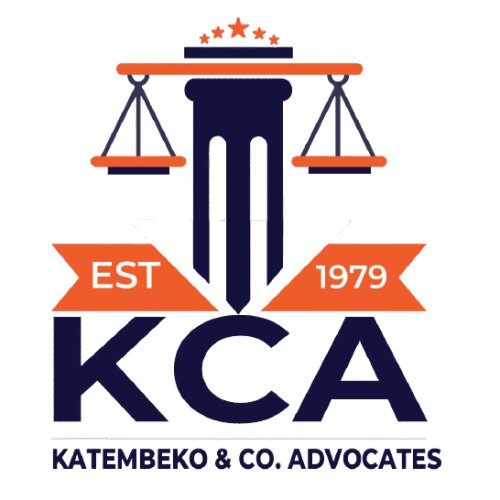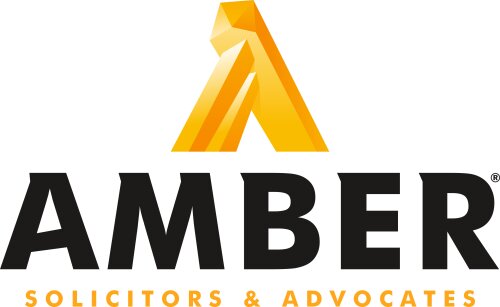Best Telecommunications and Broadcast Lawyers in Kampala
Share your needs with us, get contacted by law firms.
Free. Takes 2 min.
List of the best lawyers in Kampala, Uganda
About Telecommunications and Broadcast Law in Kampala, Uganda
Kampala, the capital city of Uganda, is not only the country's economic hub but also its main center for telecommunications and broadcast activities. Telecommunications and broadcast law in Uganda is designed to regulate the infrastructure and services that enable voice, data, and media communications. These laws cover a wide range of areas, including licensing, spectrum management, content regulation, and consumer protection. The Uganda Communications Commission (UCC) is the primary regulatory body, responsible for overseeing the industry and ensuring compliance with relevant laws and regulations.
Why You May Need a Lawyer
There are several scenarios where individuals and businesses may require legal assistance in telecommunications and broadcast in Kampala:
- Setting up a telecommunications business and navigating the licensing process.
- Understanding regulatory compliance requirements for broadcasting content.
- Resolving disputes between service providers and consumers over service quality or billing issues.
- Assisting with the negotiation of contracts in the telecom industry, such as franchise agreements, interconnection agreements, or equipment supply contracts.
- Addressing concerns related to data privacy and security in telecommunications services.
- Managing intellectual property rights, particularly concerning broadcasting content.
Local Laws Overview
Telecommunications and broadcast laws in Kampala are primarily governed by the Uganda Communications Act of 2013, which provides a comprehensive framework for the regulation of the sector. Key aspects of these laws include:
- Licensing: Any entity wishing to offer telecommunications or broadcasting services must obtain the necessary licenses from the UCC.
- Spectrum Management: The allocation and use of spectrum are regulated to prevent interference and optimize use.
- Content Regulation: Broadcasters must adhere to content standards that protect public morals and promote national interests.
- Consumer Protection: Laws are in place to ensure fair pricing, service quality, and the resolution of consumer grievances.
- Data Protection: There are legal requirements for the handling and protection of personal data in telecommunications.
Frequently Asked Questions
What is the role of the Uganda Communications Commission (UCC)?
The UCC is responsible for regulating the telecommunications and broadcasting sectors in Uganda, including licensing, spectrum management, and enforcing compliance with regulations.
How do I apply for a telecommunications license in Uganda?
You need to submit an application to the UCC, including detailed business plans, technological descriptions, and proof of financial capability, among other requirements. The UCC will assess the application and grant a license if all conditions are met.
Are there any content restrictions for broadcasters in Kampala?
Yes, broadcasters must adhere to content regulations that prohibit material that may be considered obscene, inflammatory, or contrary to public order and morality.
What should I do if I have a dispute with a telecom service provider?
First, try to resolve the issue directly with the provider. If unresolved, you can escalate the matter to the UCC, which provides a mechanism for dispute resolution between consumers and service providers.
What are the requirements for equipment approval in Uganda?
All telecommunications equipment must be type-approved by the UCC to ensure compliance with national standards and prevent network interference.
How are tariffs regulated in the telecommunications sector?
The UCC sets and approves tariffs to ensure that prices remain competitive and fair for consumers while allowing providers to cover costs and invest in network infrastructure.
Can individuals own telecommunications infrastructure in Uganda?
Yes, individuals or companies can own telecommunications infrastructure, provided they obtain the necessary licenses and comply with regulatory requirements.
What laws protect consumer rights in telecommunications?
Consumer rights are protected under the Uganda Communications Act, which ensures services are provided fairly, transparently, and with respect to quality standards.
Is data privacy protected under Ugandan law?
Yes, data privacy is protected, and there are regulations in place that govern how personal data should be collected, stored, and processed.
What is the penalty for operating without a proper license?
Operating a telecommunications or broadcast service without a license is illegal and can result in significant fines, imprisonment, and the shutdown of the service.
Additional Resources
For further assistance, you may consider reaching out to the following resources:
- Uganda Communications Commission (UCC)
- Ministry of Information and Communications Technology (ICT) and National Guidance
- Uganda Law Society
- Local chapter of the International Telecommunication Union (ITU)
Next Steps
If you require legal assistance in telecommunications and broadcast, consider the following steps:
- Identify the specific issue or requirement you have in the telecommunications or broadcast sector.
- Consult with a lawyer specialized in telecommunications and broadcast law to gain insights into your legal rights and obligations.
- Engage with regulatory bodies such as the UCC for guidance or necessary approvals.
- Seek advice from industry professionals or associations for best practices and compliance strategies.
Lawzana helps you find the best lawyers and law firms in Kampala through a curated and pre-screened list of qualified legal professionals. Our platform offers rankings and detailed profiles of attorneys and law firms, allowing you to compare based on practice areas, including Telecommunications and Broadcast, experience, and client feedback.
Each profile includes a description of the firm's areas of practice, client reviews, team members and partners, year of establishment, spoken languages, office locations, contact information, social media presence, and any published articles or resources. Most firms on our platform speak English and are experienced in both local and international legal matters.
Get a quote from top-rated law firms in Kampala, Uganda — quickly, securely, and without unnecessary hassle.
Disclaimer:
The information provided on this page is for general informational purposes only and does not constitute legal advice. While we strive to ensure the accuracy and relevance of the content, legal information may change over time, and interpretations of the law can vary. You should always consult with a qualified legal professional for advice specific to your situation.
We disclaim all liability for actions taken or not taken based on the content of this page. If you believe any information is incorrect or outdated, please contact us, and we will review and update it where appropriate.

















